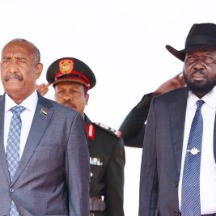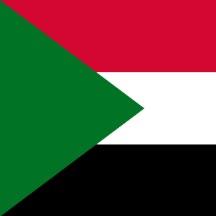

The Commander-in-Chief’s visit is ironic. Sudan and South Sudan split in 2011 after a six-year transition, following a long civil war. Each country subsequently suffered a new civil war of its own.
American involvement in Sudan predates the establishment of modern Israel and has been continuous since at least the Berlin Conference (1884-1885).
The north (Republic of Sudan) is currently ravaged by a full-blown civil war against the RSF, while the South (Republic of South Sudan) is generally at peace since a 2018 peace deal, though it still suffers from a few local insurgencies, high levels of inter-communal violence and an economic crisis that could trigger an eventual slide back to war.
The current problems started, according to my fellow Iowa State University alumni and then Sudan Army Brigadier General John Leuth, with the 1884-1885 Berlin Conference when the delegates gave control of Sudan, then called Anglo-Egyptian Sudan, to the British. After independence in 1956, the North and the South conflicted largely along how the people identified themselves.
“It (the Berlin Conference) is not only the source of all evil, it is the devastation of Africa,” said my fellow Iowa State University alumni and then Sudan Army Brigadier General John Leuth.
Northerners, no matter their complexion, width of nose, or hair texture, often see themselves as Arabs and speak Arabic. Southerners are of various ethnic groups and often practice local religions and Christianity. (Ironically, many African-American follow the rule that Ghana was the first Black African nation to secure independence from Britain in 1957.)
“It (the Berlin Conference) is not only the source of all evil, it is the devastation of Africa,” said Leuth as we walked across the snowy Iowa State University campus and I wrote the Feb 2004 – Apr 2004 cover story “Sunday, You Must Work” for Port of Harlem magazine when we were in print.
During our day-long talk, he shared his life story, the basis of today’s news, and how he had come to see Northerners as oppressors, like the British. He spoke of being forced to acculturate to Northern ways including holy days. “Now the day of rest in going to be Friday, Sunday you must work,” he recalled the edict.
In January 2021, the first Trump Administration continued its march into Africa . . .
In January 2021, the first Trump Administration continued its march into Africa as Sudan signed a declaration with the US completing an American promise to remove Sudan from the list of countries supporting terrorism and reaffirming a previous American commitment to provide a bridge loan to clear Sudan’s arrears to the World Bank and access $1 billion in annual funding. In return, on April 6, 2021, Sudan approved legislation repealing a law from 1958 which had prohibited diplomatic and business relations with Israel.
It’s with this history that the Sudan Monitor reports that talks between the African leaders dealt with opening a “humanitarian” corridor to the border state of South Kordofan, though in fact the Sudanese military ruler al-Burhan is seeking South Sudan’s cooperation in military matters.
The International Rescue Committee has declared Sudan as the world’s largest humanitarian crisis. “Less than a year of fighting has already more than doubled the number of people in need of humanitarian support,” reports the Committee. It ranks Occupied Palestine at number two and South Sudan at number three.
The talks also touched on the ongoing disruption of cross-border oil flows. The two sides agreed to form a joint ministerial committee to address this, but in fact neither side can restore the oil because of a pipeline rupture in an RSF-controlled area reports the Sudan Monitor.
Kiir’s government, which is neutral in the war to the north, nevertheless has ties with both warring parties. On the one hand, South Sudan has relied on Sudan since independence to transport its oil through pipelines to the Red Sea.
It also relies on the Sudanese government in fields such as civil aviation and higher education.
On the other hand, elements Kiir’s regime do business with the RSF, buying weapons and looted vehicles and smuggling goods into RSF-controlled territories. Intelligence cooperation between the RSF and Kiir’s government predates the war.
Additionally, the South Sudan government based in Juba has close historical ties with the SPLM-North, an insurgency in the Nuba Mountains of South Kordofan. SPLA/SPLM is a Sudanese revolutionary organization that fought for a united secular Sudan.
According to the Sudan Monitor, Kiir personally fought the Sudanese military in two civil wars, starting when he was a teenager in the 1960s. As president, he has had a distrustful, transactional attitude toward the north, at times striking deals and other times seeking to undermine the Sudanese government. During the visit in late September, he received Al-Burhan warmly and with high honors.






